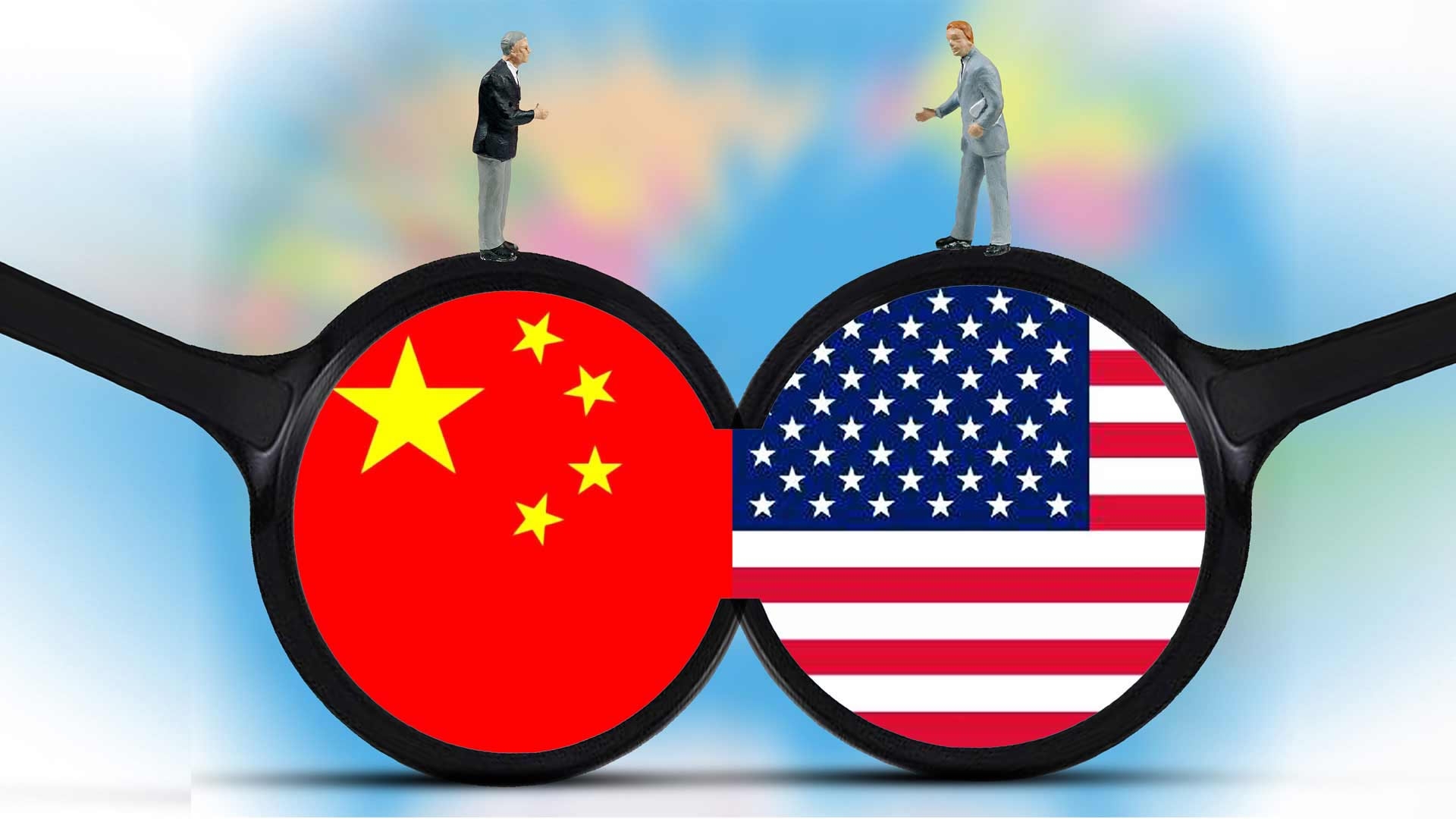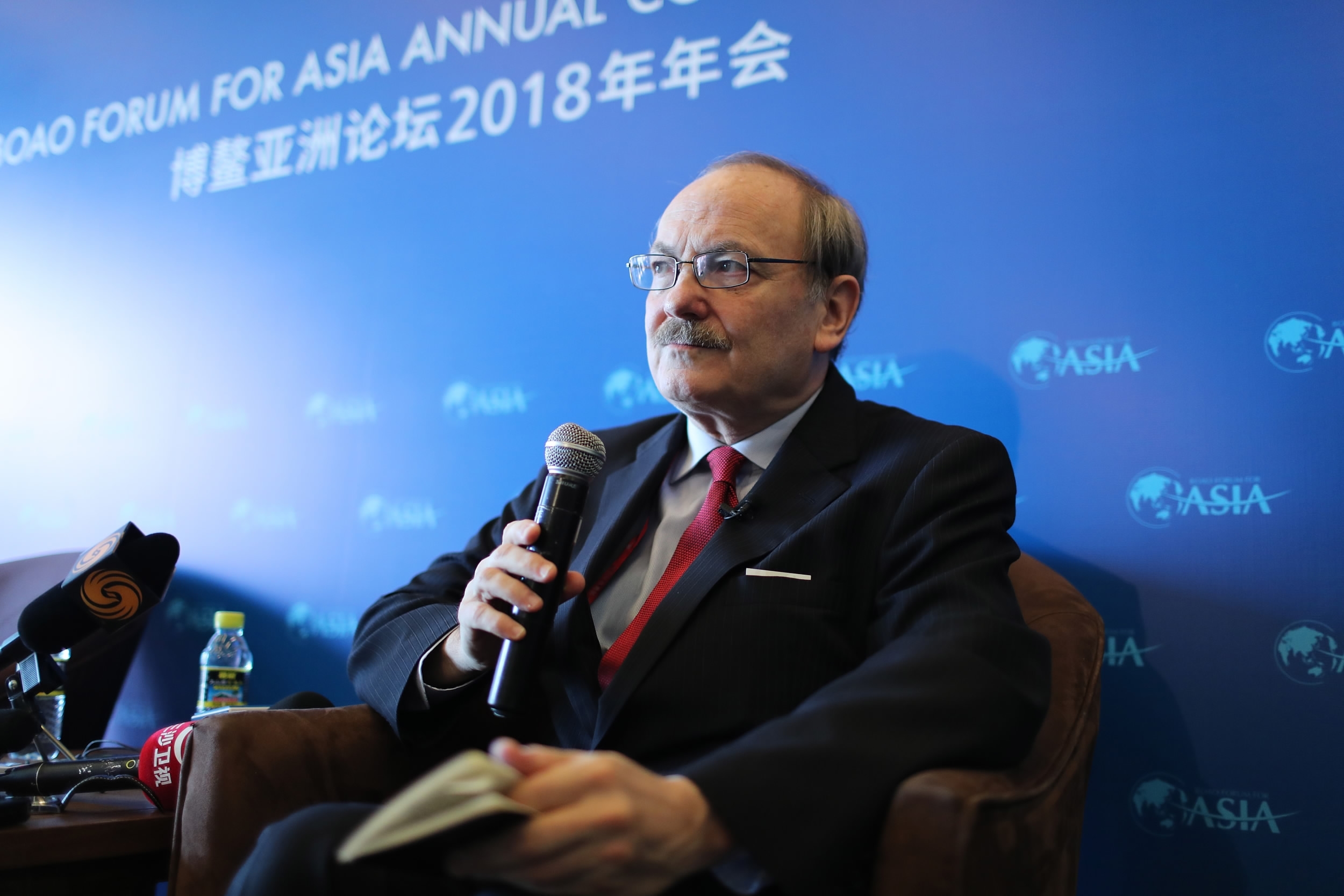
Business
15:35, 08-Apr-2018
Experts at Boao: World prosperity demands stability
By CGTN's Yang Jing in Boao, Hainan Province

The world economy, which is gradually recovering from a weak performance in the past 10 years, demands stability instead of trade conflict between the two largest economies, experts said at the opening day of Boao Forum for Asia Annual Conference 2018.
The open trade system is crucial to global prosperity and stability is as important as prosperity for both China and the US, who have the largest trade volume in the world, Kent Calder, director of Edwin O. Reischauer Center for East Asian Studies at Johns Hopkins University, said at a media briefing Sunday at Boao forum.

Kent Calder, director of Edwin O. Reischauer Center for East Asian Studies at Johns Hopkins University, speaks at Boao forum, April 8. /VCG Photo
Kent Calder, director of Edwin O. Reischauer Center for East Asian Studies at Johns Hopkins University, speaks at Boao forum, April 8. /VCG Photo
The world economy finally showed positive trend from the gloomy past 10 years with profound growth in global trade, investment as well as GDP made in 2017, Zhang Yansheng, chief researcher of China Center for International Economic Exchanges, said at another media briefing Sunday at Boao forum, noting at this turning point, the trade dispute between the two largest economies will damage the prospect of global economy.
Both Calder and Zhang compared the current China-US tension with a similar trade dispute between Japan and the US in the 1980s, which led to Plaza Accord, an agreement signed by five countries to depreciate the US dollar to the Japanese yen and eventually traumatized Japan’s economy.

Zhang Yansheng, chief researcher of the China Center for International Economic Exchanges, speaks at Boao forum, April 8. /VCG Photo
Zhang Yansheng, chief researcher of the China Center for International Economic Exchanges, speaks at Boao forum, April 8. /VCG Photo
However, globalization has made China-US trade relation different from that between the US and Japan.
The US firms have tapped much deeper in the trade with China as producers and distributors than in the US-Japan case, for example, noting many US manufacturers assemble their products in China before selling back home, Calder said.
Therefore, the deeper inter-dependence indicates the current trade tension brings higher risks for the world economy than the influence made by US-Japan case, according to Calder.
Japan has paid the price of more than a decade economic recession after the trade dispute with the US and signing the Plaza Accord. The history has shown that a trade imbalance should not be addressed with unilateral compromise, Zhang said.
China is willing to reduce the trade surplus with the US but it cannot be achieved when the US declines to export high-tech products, Zhang said, noting the two sides should consider the long-term wellbeing of the whole world and solve the disputes through negotiation.
The tariff lists unveiled by China and the US will not be put into operation until late May, Calder said and he believes there will be intensive negotiation between the two sides in the following several weeks before the US president Trump's meeting with DPRK leader Kim Jong Un at the end of May.

SITEMAP
Copyright © 2018 CGTN. Beijing ICP prepared NO.16065310-3
Copyright © 2018 CGTN. Beijing ICP prepared NO.16065310-3